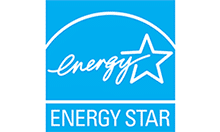The term “heating, ventilating, and air conditioning (HVAC) systems” are often used interchangeably with “heating, ventilation, and air conditioning (HVAC) systems.” Modern HVAC systems control humidity, regulate indoor temperatures, enhance the quality of indoor air by dehumidification and purification, improve air quality by filtration, and replenish healthy oxygen levels in your living space by replenishing ozone. There are several types of HVACs, including forced-air, refrigerated, and furnaces, and they all serve different needs. The most common type of HVAC system, you will find in homes is a heating unit powered by electricity, gas, or propane, while specialty systems such as whole-house humidifiers and humidifier water systems are growing in popularity. Indoor air pollution is the greatest threat to our health from HVAC-related illnesses and pollutants.
Indoor air pollution is caused by many factors, including tobacco smoke, secondhand cigarette smoke, poor ventilation caused by poorly ventilated spaces, poor energy efficiency in heating and cooling, incorrect temperature setting, and ventilation, combustion by incomplete combustion, and lack of cleaning and maintenance. Indoor air contamination can be severe enough to cause short-term or long-term health problems and is the most significant health concern of HVAC units. The U.S. Environmental Protection Agency recognizes the adverse effects of indoor air pollution and has established a foundation for regulating the safety of HVACs. Indoor air quality standards were established based on scientific information regarding the degree of contamination, the frequency of contamination, the ability of the equipment to tolerate contamination, and the degree of damage to the equipment if it is exposed to contaminated indoor air. Based on this information, healthcare professionals determine which indoor air quality management systems will provide the safest and best protection for personnel and property.
One of the most commonly replaced HVAC units are heat pumps. Heat pumps have experienced high levels of replacement due to their relatively low operating cost, high efficiency, energy efficiency, environmental benefits, and low maintenance needs. In addition, many HVAC technicians report that heat pump performance can be improved by tuning the thermostat to control the desired temperature. For older HVAC systems, replacing the heat pump may be the best option to extend the life and prevent expensive repairs.
As with all types of technology, there are many misconceptions about how to best care for an HVAC system. Most HVAC technicians have received extensive training and are aware of the proper way to service equipment. While many do not perform routine maintenance on a regular basis, others see this as a chance to learn more and offer their knowledge to customers. With proper maintenance and service, an HVAC system can last for many years. Often, technicians will recommend a comprehensive HVAC cleaning and repair program, which include tune-ups, repairs, and scheduled maintenance sessions.
Another common HVAC preventative measure is regular routine HVAC system repairs. Although many homeowners pay little attention to their HVAC, it is important to keep the cooling and heating system in good working order. Doing maintenance regularly helps ensure that an HVAC unit is able to work properly, even during extreme temperatures. Some homeowners choose to perform their own maintenance and cleaning, while others prefer to contract with reputable HVAC technicians.
The HVAC professionals from Dukes of Air can provide valuable information about HVAC cleaning and repair, including how to prevent humidification problems, how to identify potential air leaks, and other preventive measures. Homeowners can benefit from these services as much as contractors benefit from them. The goal is to reduce the amount of money homeowners spend on HVAC repairs, allowing them to save money on their heating and cooling bills. Preventive services are also necessary to help lower the number of cold air-related deaths each year.











